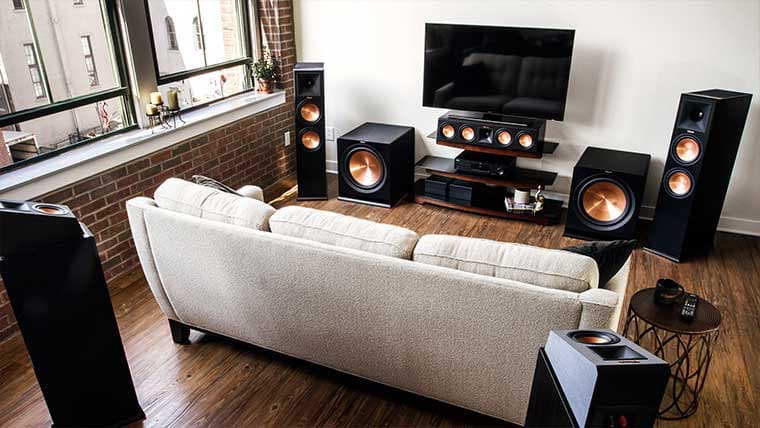A home stereo system is a set of electronic components designed to deliver high-quality sound and create a rich, immersive listening experience. Whether you’re an audiophile, a movie buff, or someone who loves music, a whole home audio systems can transform your space into a personal concert hall or cinema.
What is a Home Stereo System?
A home stereo system typically includes a combination of components that work together to provide optimal audio performance. These components usually consist of:
- Speakers: The heart of any stereo system. The speakers are responsible for reproducing sound and come in various types, including bookshelf speakers, floor-standing speakers, subwoofers, and center-channel speakers. High-quality speakers are crucial for clear, balanced sound across different frequencies.
- Amplifier/Receiver: The amplifier powers the speakers and boosts the signal from your audio sources (e.g., a CD player, streaming device, or turntable). The receiver combines the functions of an amplifier with additional features like radio tuners, surround sound processing, and connectivity options.
- Source Devices: These are the audio sources that feed into the stereo system. Common source devices include:
- CD/DVD players
- Turntables for vinyl enthusiasts
- Streaming devices (such as Bluetooth receivers, Wi-Fi enabled speakers, or streaming apps on your TV or smart device)
- Smartphones or laptops for digital music files
- Cables and Connectors: Connecting the various components is essential for optimal sound quality. High-quality cables, such as HDMI or optical audio cables, are often preferred to reduce signal degradation and ensure a crisp, clear sound.
Types of Home Stereo Systems
Home stereo systems come in different configurations based on the needs and preferences of the listener. Here are some popular types:
- Stereo Systems: The traditional two-speaker setup, usually consisting of two front speakers (left and right). These systems are designed for music lovers who appreciate a simple and straightforward approach without the need for surround sound. They focus on producing a balanced stereo image with clear, precise sound.
- Home Theater Systems: These systems are designed for those who enjoy movies and television shows with dynamic surround sound. A home theater system typically includes a combination of multiple speakers (front, surround, and subwoofer) along with a receiver to manage the audio. The aim is to create a cinematic experience with sound coming from all directions.
- Multi-Room Audio Systems: If you want to enjoy music throughout your home, a multi-room audio system might be ideal. These systems allow you to stream music to different rooms at once, either wired or wirelessly, and they can be controlled via smartphone apps or voice assistants.
- Portable Audio Systems: For a more mobile experience, there are compact stereo systems that include speakers with built-in amplifiers. These systems can connect wirelessly to your phone or tablet via Bluetooth, allowing you to take your music wherever you go.
Key Features to Look For
When shopping for a home stereo system, several features should guide your decision:
- Sound Quality: The most important factor for any stereo system. Look for clear, crisp highs, full mids, and deep lows. A good amplifier or receiver can significantly enhance your sound experience.
- Connectivity: Modern stereo systems support various types of connections, such as Bluetooth, Wi-Fi, HDMI, and optical inputs. These features provide flexibility for connecting to different devices, from your TV to streaming apps.
- Power Output: The power output of an amplifier, typically measured in watts, determines the loudness and clarity of the sound. A higher wattage does not always mean better sound, but it is essential for filling large spaces with clear, distortion-free audio.
- Design and Aesthetics: The design of your stereo system should complement your home décor. Some systems feature sleek, minimalistic designs, while others may be more vintage or traditional in appearance. Consider both form and function when making your choice.
- Brand Reputation: Established brands like Bose, Yamaha, Sonos, Denon, and Klipsch are known for delivering quality sound systems that can cater to various needs and preferences.
Benefits of a Home Stereo System
- Superior Sound Quality: A dedicated home stereo system will almost always deliver better sound quality than a standard TV speaker or portable Bluetooth speaker. Whether you’re listening to music, watching a movie, or playing games, the sound is more immersive.
- Customization: Home stereo systems allow you to customize your setup based on your space and preferences. Whether you’re focusing on high-fidelity music reproduction or creating a surround sound experience for movies, you can adjust your system accordingly.
- Increased Value: A quality home stereo system enhances your entertainment setup and can increase the appeal of your home. It adds a touch of sophistication and entertainment value, making it an attractive addition to any living room or home theater.
- Durability: Unlike portable speakers, a well-built stereo system can last for many years, especially with proper care. The durability and sound quality often improve with age, especially with high-quality speakers that get “broken in” over time.
A home stereo system is an investment in audio quality and entertainment. Whether you’re looking to enjoy music, movies, or games, upgrading to a stereo system will enhance your overall audio experience. Consider your space, budget, and preferred sound when selecting your components, and you’ll be able to enjoy exceptional sound for years to come.
